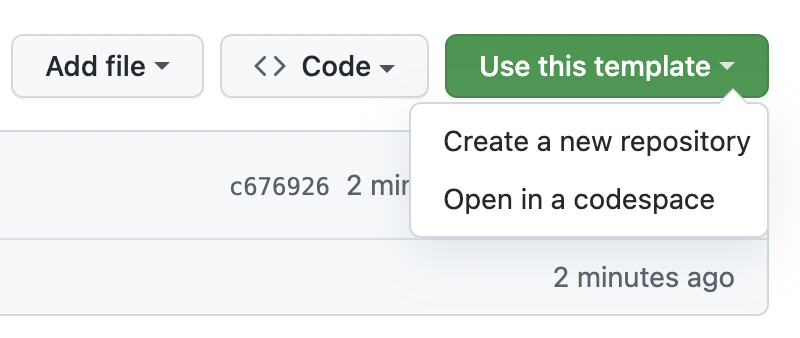It is recommend to use Use this template button on upper-right side of github project page,
to create your project repository.
There are two examples in skeleton; Groovy DSL(build.gradle) and Kotlin DSL(build.gradle.kts)
When you prefer Groovy DSL, please rename build.gradle.disabled to build.gradle and remove build.gradle.kts.
Here is a hint for modifications.
- Source code:
src/main/<lang>/* - Test code:
src/test/<lang>/*andsrc/test/resources/* - Project.name in
settings.gradle - Properties: description, title, website and category
- Plugin Main class name in
build.gradle.kts. - Coding rules:
config/checkstyle/checkstyle.xml
omegat {
version = "5.7.0"
pluginClass = "org.omegat.gui.glossary.CustomGlossaryRenderer" # change here
}
This skeleton use a Gradle build system.
OmegaT and dependencies are located on remote maven repositories. It is necessary to connect the internet to compile your project.
Current skeleton example refers OmegaT 5.7.0.
All complex configurations to refer OmegaT core are handled by
gradle-omegat-plugin.
OmegaT considered a plugin is a single jar file. If it is depend on some libraries, you should ship your plugin with these libraries. It is why generating a FatJar, a single jar file with all runtime dependencies which is not provided with OmegaT.
gradle-omegat-plugin offers special gradle configuration ParckIntoJar.
When specified it, gradle will generate a proper FatJar for you.
You can find distribution files in build/distributions/*.zip.
Also you can find jar files at build/libs/
You will find a test results report at build/reports/ and can show it with your favorite web browser.
There is an example script to use Github Actions for CI/CD.
You can get a plugin jar file from zip distribution file.
OmegaT plugin should be placed in $HOME/.omegat/plugin or C:\Program Files\OmegaT\plugin
depending on your operating system.
This project is distributed under the GNU general public license version 3 or later.
